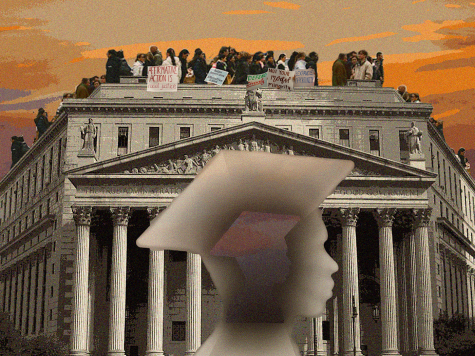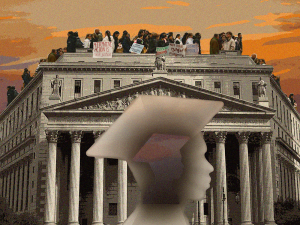Ensuring academic freedom: professors should retain the right to teach critical race theory
November 15, 2022
Over the past several years, many Republican legislators have criticized critical race theory, a social science concept which, according to the American Bar Association, “critiques how the social construction of race and institutionalized racism perpetuate a racial caste system that relegates people of color to the bottom tiers.”
Republican legislatures have worked to ban the instruction of CRT in higher education institutions, fearing that this theory frames white people as the culprits of racism and creates division between social groups.
In February 2022, Lt. Gov. Dan Patrick voiced the widely-held conservative viewpoint on the issue.
“We’re not going to allow a handful of professors who do not represent the entire group to teach and indoctrinate students with critical race theory‚ that we are inherently racist as a nation,” Patrick said in a press conference. “We’re not going to allow it to happen. We will change those rules.”
Regardless of attacks on critical race theory instruction in Texas, CRT should remain in higher education in order to protect university faculty and student access to a diversely informed education.
Dan Patrick’s view, in reality, is a severe misconception of what CRT really is.
“CRT is a lens that looks at past race issues and how those race issues are still very much existing today,” said Raikolf Lopez, president of UT University Democrats. “These issues in the past cause a ripple effect that is still seen today, and without this lens, most people just wouldn’t notice.”
CRT isn’t a mechanism that aims to cause hostility toward white people. Instead, it gives students the opportunity to think critically about how racial history may affect the present in varying ways. It gives them another way to see the implications of past policy and consider how we can improve current policy for a more equitable society.
Angela Valenzuela, professor of educational leadership and policy, identified what’s at stake with a potential ban on CRT instruction.
“The larger issue really is academic freedom,” Valenzuela said. “It’s to protect faculty (and) the public. The public needs to have access to knowledge and information that is credible, that is studied, that is from a research-based perspective, and that draws in different frameworks, including critical race theory or any other number of frameworks.”
Banning professors’ ability to teach CRT would be a direct attack on freedom of thought and expression in the classroom. Policymakers should not be able to dictate what professors teach. This confinement of ideas would go against the notion of academic freedom, a pillar of the American educational system.
Of course, there are some topics and hateful rhetoric which professors shouldn’t be able to promote in the classroom, such as eugenics or discriminatory ideology, but it is wholly unreasonable to group CRT with such topics. In its truest form, CRT promotes fact-based and non-discriminatory analysis and makes students more open-minded and perceptive of our nation’s current issues.
CRT should remain in higher education because it gives students a framework for appropriately understanding today’s realities. Given its role in forming a holistic education, the Texas Legislature should refrain from banning its instruction and censoring ideas. Rather, legislators should promote academic freedom in the classroom and allow students to address issues and work toward solutions with a critical and adaptive mindset.
D’Eramo is a Plan II and International Relations junior from Tyler, Texas.











